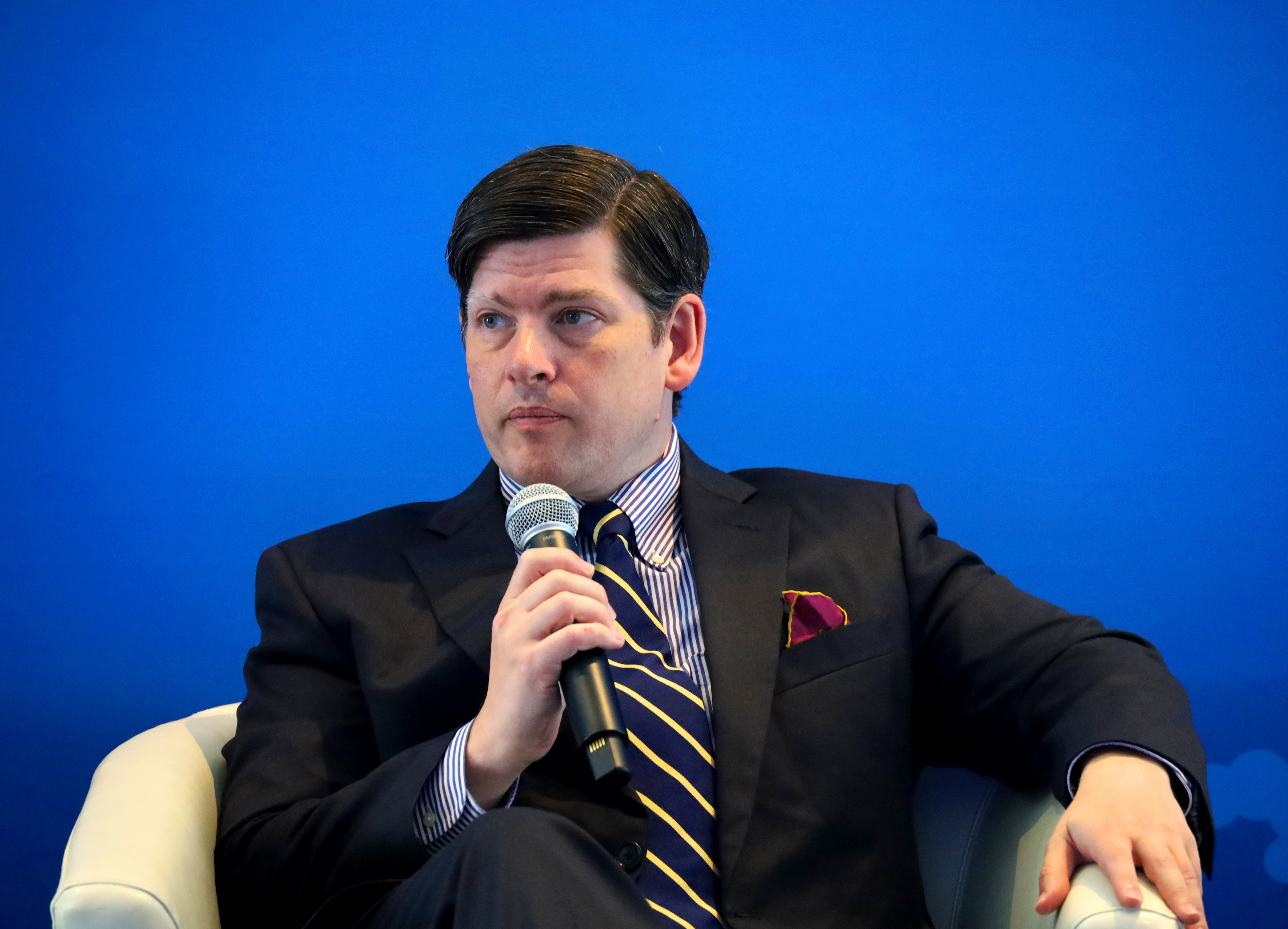FCC’s Simington Blasts Broadcast Networks as a ‘Corrupt Media Cartel’
Says FCC should put a cap on ‘reverse retransmission fees’ and move ‘to hit fake news where it hurts most: financially’

The professional video industry's #1 source for news, trends and product and tech information. Sign up below.
You are now subscribed
Your newsletter sign-up was successful
WASHINGTON—Federal Communications Commission member Nathan Simington and his chief of staff, Gavin Wax, have published a blistering editorial urging that the agency crack down financially on broadcast networks like CBS that they believe are part of a “corrupt media cartel.”
The editorial framed the argument as part of an effort to back President Donald Trump’s larger “America First” agenda and as a policy that would strengthen local broadcasters at the expense of broadcast networks like CBS.
After praising Trump’s $20 billion lawsuit against CBS as “bold litigation,” the editorial in The National Pulse said “we must go beyond the courtroom to move from outrage to reform.”
To achieve those changes, they proposed the FCC institute a 30% cap on “reverse transmission fees” that would hurt the broadcast networks, “protect local broadcasters, lower consumer costs and strike a decisive blow against the corrupt media cartel.”
“Media conglomerates like Paramount Global, the parent company of CBS, have begun charging what’s known as ‘reverse’ retransmission fees to broadcasters,” the editorial contended. “The networks demand a share of broadcasters’ revenue for the right to use their content. This practice was once unheard of, but some networks now regularly require more than one hundred percent of broadcasters’ retransmission fees as “reverse” fees, leaving broadcasters to sustain themselves solely on whatever ad sales they can make with their limited inventory (also capped by the networks, and often amounts to only a few minutes of airtime per hour).”
The editorial also attacked networks for the current practice of the networks handling retransmission consent negotiations with vMVPDs like YouTube TV, a system that broadcast stations have tried to change.
“Under their affiliate agreements with the networks, local affiliates can’t even negotiate for online providers to carry the content,” the editorial argued. “The networks do it for them and pay the affiliates whatever they deem reasonable (sometimes, nothing). This gives the networks total control over streaming distribution while robbing local stations of revenue and autonomy in the rapidly growing online video space. What was once a mechanism to support hometown news is now a corporate racket. Instead of investing in local reporters, meteorologists, and producers, local broadcasters’ funds are siphoned to bloated national newsrooms that churn out anti-Trump propaganda and woke talking points. Meanwhile, higher cable bills pass the cost to everyday Americans.”
The professional video industry's #1 source for news, trends and product and tech information. Sign up below.
“Capping reverse retransmission fees at 30% is not just a technical tweak; it’s a strategic strike on these bad actors’ financial foundations,” the editorial stressed.
Simington and Wax added that the FCC could take further action to hurt the networks financially: “[I]f the networks try to make an end-run by demanding an unfair cut in ad sales, restricting available airtime for local news and weather, or prohibiting broadcasters from trying to reach new audiences through alternative distribution channels, then the FCC should be prepared to step in and stop it. President Trump was elected with a mandate to put the American people back in charge. Capping reverse retransmission fees does just that. It ensures your local news stays local, your cable bill stays lower, and your country remains free from corporate media control.”
The ideas would get the FCC directly involved in the financial details retransmission consent negotiations and potentially in pricing, something the agency has been reluctant to do in the past.
The full editorial can be found here.
George Winslow is the senior content producer for TV Tech. He has written about the television, media and technology industries for nearly 30 years for such publications as Broadcasting & Cable, Multichannel News and TV Tech. Over the years, he has edited a number of magazines, including Multichannel News International and World Screen, and moderated panels at such major industry events as NAB and MIP TV. He has published two books and dozens of encyclopedia articles on such subjects as the media, New York City history and economics.

